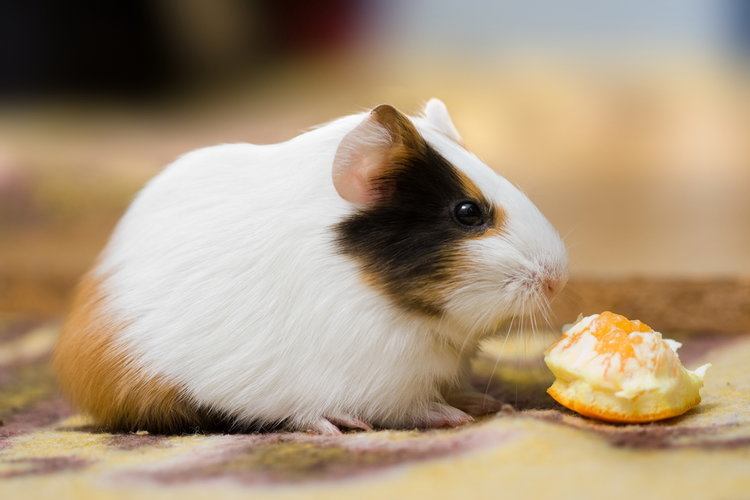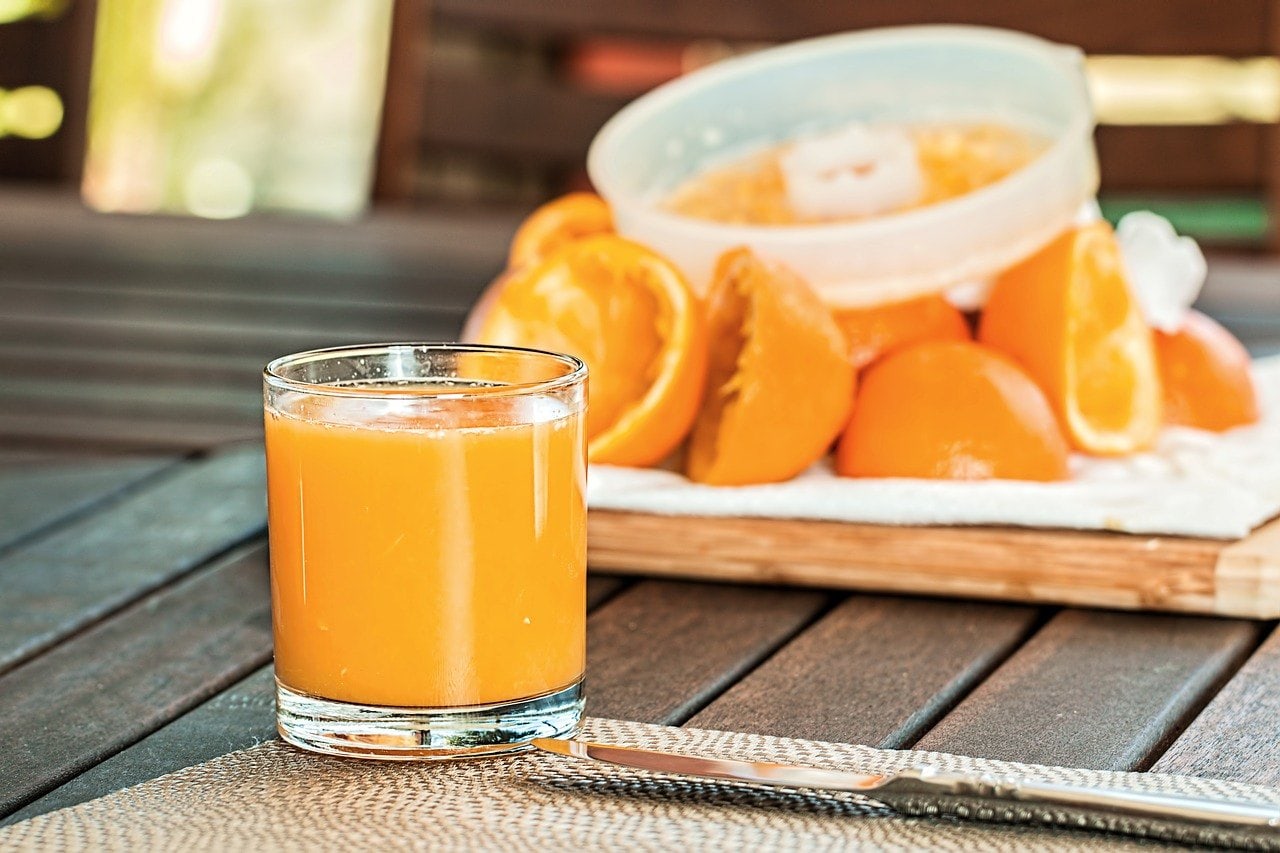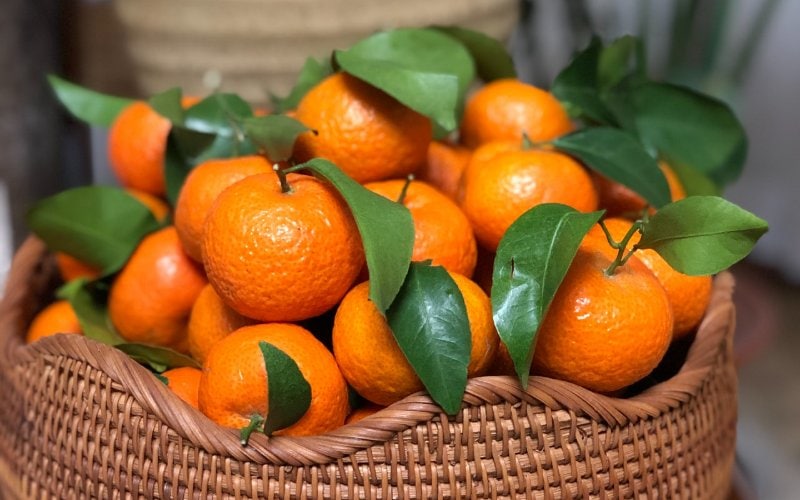
Richly colored, sweet, and packed with vitamin C, oranges rank as one of the most popular fruits in the world. The next time that you’re peeling into one of these delicious fruits, you may wonder: can I share this with my guinea pig?
Yes guinea pigs can eat oranges! Guinea pigs are completely able to eat both the flesh and peel of oranges. In fact, these vitamin-rich fruits can become a useful addition to your guinea pig’s diet thanks to their abundance of ascorbic acid, or vitamin C.
That’s far from being the whole story, though. Read on to discover more about the potential dangers of overfeeding oranges to your guinea pigs, as well as helpful tips and guidelines for how much orange you can share with your cavy on a daily and weekly basis.
Oranges Nutrition and Fun Facts
According to Nutritionvalue.org, navel oranges have the following guinea pig-relevant nutrients per 100 grams:
- 13 grams of carbohydrates, with 2.2 grams of dietary fiber and 8.5 grams of sugar. This is somewhat on the sugary side for a guinea pig’s diet, meaning that it’s best offered in moderation.
- 43 milligrams of calcium, a small amount of a necessary nutrient that can be dangerous if fed in excess.
- 1 milligrams of vitamin C, an essential nutrient that guinea pigs (like humans) cannot produce on their own. This high vitamin C content is what makes oranges a useful addition to your guinea pig’s diet.
Additionally, the peels provide extra fiber for your cavy’s diet.
Health Benefits of Oranges for Guinea Pigs
Oranges are beneficial for guinea pigs based almost entirely on their generous vitamin C content. An essential nutrient that guinea pigs rely on dietary supplementation to receive, vitamin C is necessary for preventing the development of skin- and organ-related diseases.
In fact, in the absence of dietary sources of vitamin C, you’ll need to provide a liquid supplement in your guinea pig’s water supply. We greatly prefer adding vitamin C in the form of solid foods, as that means we get to see how much our cavies enjoy their treats, too.

Can Oranges Be Bad for Guinea Pigs?
The only nutritional danger that oranges can pose to a guinea pig is a result of their fairly high sugar content. Like most animals, guinea pigs love the sweet taste of fruits and sugars – but because of their sensitive digestive systems, they can’t often handle too much of it without causing themselves serious gastrointestinal distress. Furthermore, prolonged overfeeding of sugars can easily lead to obesity for your pet.
How to Feed Oranges to Your Guinea Pigs
Choose a fresh and ripe organic orange, and you’re all set to start sharing it with your guinea pig right away. Stay away from non-organic produce, as the peels will often be treated with waxes and pesticides that can seriously damage your guinea pig’s health. Simply tear up the peels and pieces of orange into small chunks before sharing them with your guinea pig and remove any seeds as they can easily become choking hazards.
How Much Orange Can I Feed My Guinea Pig?
A guinea pig’s diet should primarily consist of unlimited amounts of fresh hay, and anything else that’s added should be considered supplemental. To this effect, feed your guinea pig only very small portions of orange flesh and peel at any time—no more than about the size of your thumb, or a few mouthfuls for your pet. Limit these sweet treats to once or twice a week to keep your guinea pig from gaining excess weight.
Types of Oranges to Feed Your Guinea Pig
There’s a wide world of orange types and orange products to explore, and not all of them are a great idea to feed your guinea pig. Let’s examine each of them a little bit more closely:
Can Guinea Pigs Drink Orange Juice?
While your guinea pig can drink orange juice, it’s really not a great idea. Juicing the fruit only serves to concentrate the sugars and remove the healthy fiber. Feed them whole fruit instead.

Can Guinea Pigs Eat Canned Oranges?
Absolutely not. Fresh foods are essential to your guinea pig’s digestive health, and cooked, canned, and frozen foods are a sure way to bother their stomach. Don’t feed your guinea pigs oranges from a can, or oranges preserved in syrup.
Can Guinea Pigs Eat Satsumas?
Guinea pigs can definitely enjoy these easy-to-peel Asian citrus fruits. They were first grown in Japan but now are commonly found in the American South.

Can Guinea Pigs Eat Mandarin Oranges?
Higher in sugar and less sour than navel oranges, Mandarin oranges are also safe for guinea pigs to eat.
Can Guinea Pigs Eat Tangerines?
A hybrid of the Mandarin orange, tangerines are also completely safe for guinea pigs to eat.
Can Guinea Pigs Eat Blood Oranges?
A distant relative of the navel orange, blood oranges are sweeter and darker in color than standard oranges. Guinea pigs can eat them safely, but you should be especially careful to remove the more abundant seeds.
Can Guinea Pigs Eat Clementines?
A cross between the Mandarin orange and sweet orange, Clementines have a smooth peel and are easily separated into segments. They’re safe for guinea pigs to eat, but many guineas don’t enjoy their more sour flavor.
Final Thoughts on Feeding Oranges to Your Guinea Pig
Oranges in many forms and varieties can be a valuable addition to your cavy’s diet. As long as you choose organic fruit, prepare it safely, and don’t go overboard on the portion sizes, the added vitamin C can help keep your guinea pig happy and healthy. Plus, it’s always enjoyable to feed your beloved pet a delicious treat that’s good for them, too!
Find out more about food safety and your guinea pig:











